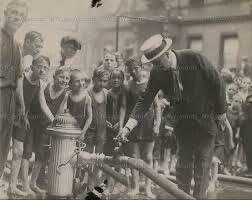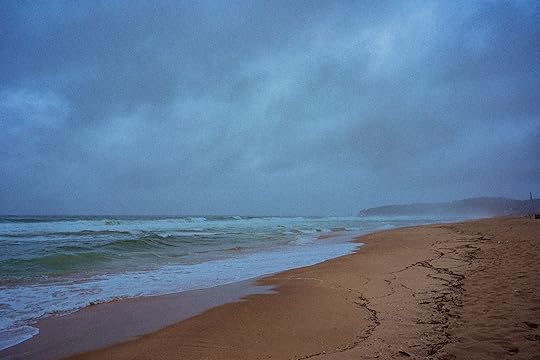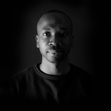Kern Carter's Blog, page 33
July 27, 2022
Love is Watching a Mountain from Afar
 The Mountain
The MountainI know there are people out there who exclude others from the vast emotion of love. They say ‘you can’t love them, you’re a vampire or you’re a girl or you’re not good or pretty enough.’ I was told no one would find me attractive with my rough, cratered skin or my back full of black and white scars. I was told people with craters don’t find love; they’re unattractive.
Just as it was said, I saw a man doing an interview on TV. He was a human with scarred cheeks, an olive tan, and sweaty hair. He held the microphone to his lips as though he wanted to cover them and pointed his shoulders inwards. In that moment, I found him particularly attractive, as though I wanted to kiss his cheeks and hold him close. Situational irony, I suppose.
The story I wanted to tell is of an awakening out of the beginning of a fairy tale. It felt like a prince on a white horse prancing over to greet me and plague my mind. It is one of the simplest of elements: love. People can try and destroy it all they want; love will always prevail, love will always exist.
While I was becoming a volunteer for Masadam-Yae, we went through an interview process. The place was far from my home, so I needed a ride from my dad.
The air was warm for the middle of winter. Snow covered the trees and piles of heavy slush hid the playground behind the interview centre, which was a small, red-bricked building. It reminded me of a cartoon school house, with its pointed roof and circular central window.
The first half of the interview process wasn’t too interesting. Everyone sat in a room congregated around white plastic tables with either black school chairs with metal legs or antique wooden chairs found perhaps in a basement under a white cloth. We watched a powerpoint presentation going over many things I cannot remember, although I do remember that the presentation itself had a sky blue background. Then we were split into our interview groups.
Within our group, there were eight people: a few fae and elves, a sun elf, me, and our human interviewer. Sitting next to me were two elves, one to my right and one to my left. I fell far and hard for the elf to my left.
She had shoulder length wavy hair that shone like watching a sunset with sunglasses on. She told us that she wasn’t from Qikamda, my country, but rather from somewhere in the continent of Soren. People always raved about accents from Soren, but I never got the hype until then. Her words rippled in my ears like warm honey. Everything she said was smooth and sweet and melted my heart.
The best trait of the elf was the trait I was told no one would love. She had bumps decorating her cheeks. Each bump was rosy, like a lumpy pink freckle. I stared at them as she spoke and thought, over and over again, maniacally: I want to talk to you, I want to know you. In the moment, I wanted to be her friend. I wanted to text her memes and learn her native language. I wanted to laugh with her.
The day ended too quickly and my introversion got the better of me.
Love at first sight never felt this sweet yet this bitter. I wish I was more extroverted, so I could’ve gotten a name, a number, a conversation, an email, a social media account, an interest we shared so I could hold it in my dry hands and smile that I finally met them.
My favourite visual novel had a line it in that read: “Love is the element that drives everything. It explains everything.” While the sentiment is a bit exaggerated, I like to think that love drives so much of our lives, happy and sad. This is why it’s the most unstoppable force. You can take the people out of love, but you can’t take the love out of people.
Love is for anyone and love is for everyone. Love while the air can still pump through your lungs and in your blood so that you can feel every gripping moment of it and exhale the addictive chemical out for others to feel too. That’s the best time to feel it!
— Heleza
[image error]Love is Watching a Mountain from Afar was originally published in CRY Magazine on Medium, where people are continuing the conversation by highlighting and responding to this story.
July 26, 2022
The Counterintuitive Reason Why You Want Pain in Your Life
July 25, 2022
Through The Wire
Baby, It’s Hot Outside
How anyone from Generation X and before knew it was a scorcher of a day
A red stain: shocked into womanhood
A short answer would be to be born into a South Indian household.
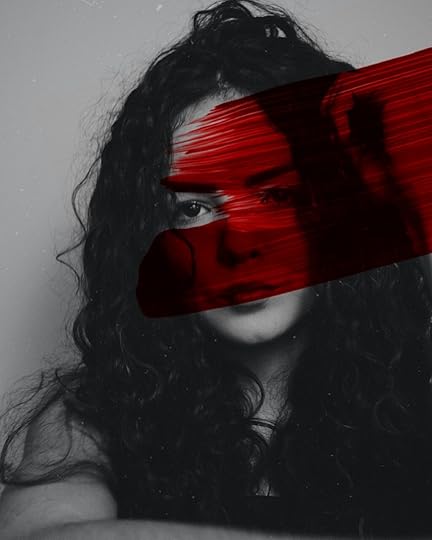 Stephany Lorena | Unsplash
Stephany Lorena | UnsplashIt all began with a phone call. (Well, in all honestly, it began when my ancestors thought guerilla marketing was essential to announce that my body could newly produce more colours than the foundational two. But let’s not go that far into Indian history.) Nothing in the day hinted that it would be anything out of the normal. Wearing my cute little uniform skirt, I was casually walking back to class with my friends after my school prayer. I only sniffed out the trouble when my mother had forcefully come to pick me up in the middle of my school day. Little did I know that my innocent skirt bore the secret red one-way ticket to womanhood: a period stain.
I didn’t even know till then. But all my relatives and family friends already did. As a 5th grader, I was surprised that my body could leak in more colours than yellow and brown but shocked that amma (‘mother’ in my native tongue Tamil) had called appa (father), thatha-paati (grandparents), and the rest of her contact list to share this news. Before I could grasp what was happening, I found myself in a traditional silk pavadai dhavani (a South Indian two-piece saree) adorned with gold ornaments and courted by my relatives and family friends, all of whom had abandoned their immediate work to attend my coming-of-age ceremony. Seated on a wooden plank in front of our pooja cabinet, I was having sandalwood paste applied on my cheeks, which were flushed with embarrassment by the married women with everyone showering me with flowers. There was nothing I wouldn’t have done to get out of there to crawl into bed and lie in amma’s hands. Barely an hour into ‘womanhood’ and I was already tired of it.
Puzzled by the absurdness of this ceremony, I later asked amma the significance of the pooja and no, it wasn’t to celebrate the wonders of womanhood. Instead, it was to announce that the girl was ready to marry and capable of bearing children: marketing to the eligible men around that there is something in store for them.
Fun Fact: I’m 18 and very much haven’t been married
To have partaken in such a religious ceremony did not please me, but worse still was the pride gleaming in pati’s eyes when she had blessed me with a successful marriage; a pride that was absent when I topped math class or won a Carnatic music competition or for anything else I earned. It hurt me to witness this, but it also revealed how my religion was being mobilized to perpetuate the oppression of women. Suddenly, my identities as a Hindu (one of the many Indian religions) girl and a free one were in conflict.
Honestly, growing up in the deeply patriarchal society of India really makes you look at things differently. I felt privileged and marginalised. If I say every other girl I know didn’t have a similar story rooted in patriarchal narratives, I’d be lying. Doesn’t this invalidate my own? If we all shared a collective experience, why was I the only one who saw the problem? In all honestly, I was better off than most of my friends. I was still allowed to wear shorts at home, allowed to do sports, and allowed to pursue my interests. While my friends weren’t allowed these little ‘privileges’, I felt guilty to explore why I had to use the word ‘allowed’. I kept comparing things back to my brother instead of my friends. I couldn’t go play cricket on the nearby ground, couldn’t go out of my house alone much, or couldn’t really just do things without examining how many men are going to be there. Except, in a world where the everyday newspaper has you wondering if you’re next to be raped or harassed, I know for a fact that I can’t blame my parents. I blame the way things just are. Well, so much for womanhood I guess.
[image error]A red stain: shocked into womanhood was originally published in CRY Magazine on Medium, where people are continuing the conversation by highlighting and responding to this story.
July 22, 2022
I Don’t Like Summer
July 21, 2022
Poem: Meditation
 Photo by Prasanth Inturi: https://www.pexels.com/photo/silhouette-of-man-at-daytime-1051838/
Photo by Prasanth Inturi: https://www.pexels.com/photo/silhouette-of-man-at-daytime-1051838/Empty your mind,
Empty your soul,
Close your eyes,
Allow your heart to flow,
Just let it go,
Forget the past,
Focus on the present,
Tomorrow will fix itself,
Just focus on today,
Poem: Meditation was originally published in CRY Magazine on Medium, where people are continuing the conversation by highlighting and responding to this story.
July 20, 2022
My Company, the Four White Walls
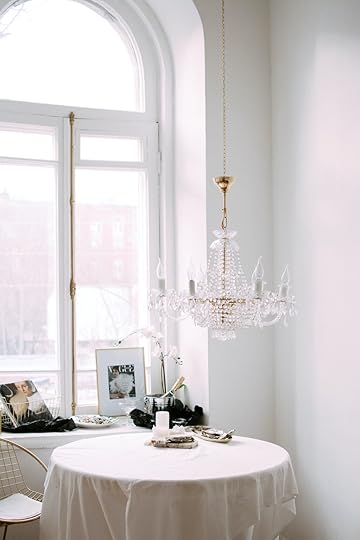 Photo by Svetlana Romashenko: https://www.pexels.com/photo/chandelier-over-table-in-home-11057127/
Photo by Svetlana Romashenko: https://www.pexels.com/photo/chandelier-over-table-in-home-11057127/I’ve got four white walls and a white ceiling. They are currently my closest friends. The ones I stare at blankly at the start of my day and the ones that comfort me in the dark during my sleepless nights. My white walls and ceiling aren’t spotless -just like my mind, but they shelter me from the heat, the rain, and the judgmental eyes. They afford me privacy in my solitude and keep me company when I have no one to see or nowhere else to be.
At times though, my white walls confine me like a prison. Not for the lack of a door key, but for all the “she’s always alone”, “she has no friend” and “she has nothing to do and nowhere else to be” that I always imagine in people’s minds when they see me. It is silent within my four white walls, and sometimes, silent within my mind too. Sometimes.
Growing up in a society that favors extroversion, I have been told many times that I need to change in order to fit in. To blend in. To succeed. Each time I try, the result was different. It could be absolutely lovely, but could also be purely pretending which is soul-sucking -depending on the company. I wouldn’t say I am antisocial, even though at times I appear to be. I’ve got friends I rarely see and a family away from me. Those that are always with me, as you can guess, are the four white walls.
So am I free? Am I happy? I sometimes ask those questions to the ceiling and four white walls. After all, they witness my laugh and my silent cry. They see me dressing up and trying to look pretty. They see me before I put my mask on for the world to see.
Are you happy?
I’ve long learned that there are nineteen types of smiles but only six for happiness. Living in a society that takes pride in its hospitality, a smiling face equals friendliness and that is what’s expected out of me. I used to have no problem with it until one day I saw my eyes and noticed the glow wasn’t reflected on them. Your smile wasn’t genuine, they said. It wasn’t difficult to fake a smile, but how was I supposed to fake happiness within me?
Within my four white walls, I am free to be me. Free to jump into the air and dance like crazy when I feel like it, and in a completely different scenario, I am also free to curl up in a fetal position and sob. Free without anyone but myself to judge me. Or to pity me.
When I was a little kid, the adults always asked me what do I want to be when I grow up. My answers changed almost on yearly basis, from a designer, an architect, a novelist, an actress, a doctor, and a couple of other things until one day, as a teenager, I decided to just answer “I want to be happy”. Year after year passed and then I, as an adult, learn the hard way that happiness isn’t as black and white as I once thought it is.
As an adult, I learned the struggle of paying the bills and taking care of my mental health. I got to know heartbreaks and found skeletons in the office closets. I learned that success isn’t a linear process, but failure shouldn’t define me. I revisited my old dreams and found some are now dead, but that too is okay, because we have changed.
So back to the original question, am I happy? My four white walls didn’t budge when I asked that (of course!), so I guess it’s only me who can answer. I guess I am, but just like the moon, I also have my phases. I learned, however, that happiness is really about the “being” and not the “doing”.
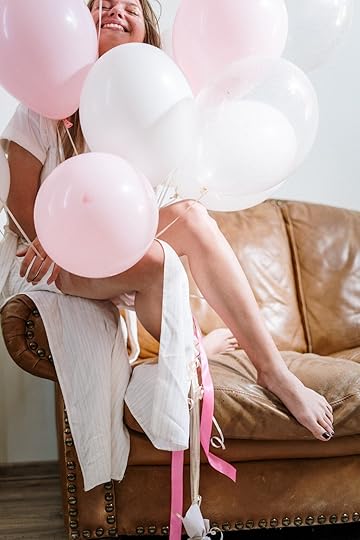 Photo by cottonbro: https://www.pexels.com/photo/woman-in-white-sleeveless-dress-holding-pink-balloons-4684175/
Photo by cottonbro: https://www.pexels.com/photo/woman-in-white-sleeveless-dress-holding-pink-balloons-4684175/What about you, by the way, are you happy?
What do you do for a living?
I breathe the oxygen, eat my food, drink a lot of water, catch up on sleep when I can, take a walk in nature, explore new things and places, practice my hobbies, socialize when there are people to meet, and otherwise take refugee within the four white walls. Does that sound like an acceptable answer? Maybe, but not usually.
After trying out different occupations in different fields over years, I try to detach my identity from my work -at least a little. It doesn’t mean I don’t want to work or don’t want to open up to people about me. Truth to be told, my main problem with the question lies on an entirely different issue: not all do, but still, too many people decide how much respect they should give you based on your occupation and approximately how much money you’re making. What a world we live in.
Don’t get me wrong, I am guilty of this too sometimes. I didn’t put enough effort to get to know the names of the janitors in my old offices or all the service staff yet they had to know mine because I was one of the managers. Yet sitting here alone on my bed, within the privacy of my four white walls, I think “does that even matter? After all, none of these positions will last.”
Once they are over and you close a chapter in your life, what do you want people to remember about you?
The circle and the square
This long-delayed post was written over the course of a few weeks (with long pauses, as you can guess). I turned a whole year older in the meantime. When I was a schoolgirl, my entire classmates were my friends. When I was an office worker, my circle revolved around those I worked with and some other friends that come and go. Once I left the old routine, I noticed my social circle shrunk even further because I no longer meet the same people on a regular basis. At some point, the circle turned into a square.
Yep, the four white walls again.
Doesn’t the loneliness drive me crazy? Sometimes, absolutely (but at least it is concealed within the walls). Not always though, as being alone doesn’t always mean being lonely. During the two years plus of the pandemic, not leaving home was normalized and suggested. Yet once things got a little better, the busy bees and social butterflies are also back in the spotlight, and those who seem to be always alone and “stuck” within the walls are back to being the losers. Or at least the boring ones.
My square, however, would never judge me.
 Photo by cottonbro: https://www.pexels.com/photo/light-man-hands-people-6756093/
Photo by cottonbro: https://www.pexels.com/photo/light-man-hands-people-6756093/The voice in your head
When there is no noise in the background, the voice in your mind is the only one you hear. Sometimes it is loud and clear, the other times a quiet mumbling sound. Within the shelter of my four white walls, I listen to mine frequently. I converse with myself like the loony that I am, I reflect on my past and speculate on my future. I found a whole universe in my mind, invisible to anyone but me.
Sometimes my mind is a terrifying place to be. The other times, it is exactly where I need to be. After all, in a world full of voices, the one you need to listen to the most is your own.
Sometimes I am still afraid to be alone. I am afraid to miss out on things and end up forgotten, but most importantly, I am afraid to be left behind. The other times, I remember we make our own paths and no life is truly comparable to the other. Either the frequent self-reflection is another sign that I am getting older -or just have too much time alone with the four white walls.
To home
People say home is where your heart is. In this sense, my four white walls feel like a stopover, not the destination. Not home. One day, I will leave. One day, I will need to step out into the big scary world again and continue my journey. One day, I will travel a great distance away from my four white walls.
But today, I’ll stay around. Right now, I’m gonna lean against my white walls. My company.
[image error]My Company, the Four White Walls was originally published in CRY Magazine on Medium, where people are continuing the conversation by highlighting and responding to this story.
What First Inspired You To Write?
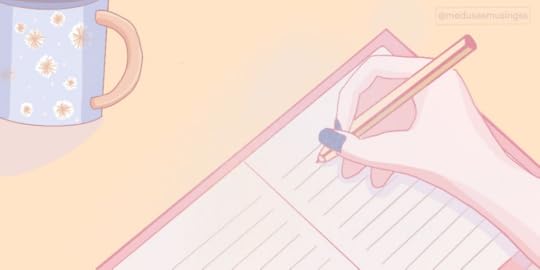 Art by author (Agnes)
Art by author (Agnes)Honestly, I don’t know what first inspired me to write, but I have an inkling of what inspired me to believe that I am a writer again.
I’ve been writing stories since I can remember. In some box, folder, or drawer, there is a white A4 page with a drawing of a cow and a flower. The two characters stand under quite possibly the wobbliest letters you will ever see, forming a couple of short sentences about how the cow and the flower meet and become friends. I don’t know if that was my first story, but it’s the first that didn’t get lost in the growing-up business. I was probably four or five and already telling people I wanted to write.
I wrote whatever I read. When I was reading stories about animals, I wrote stories about animals. When I read stories about detective kids (this was a favorite genre for a while) I wrote stories about detective kids. There’s one I wrote on a computer (I’m not that old but back then writing it on the computer was not a minor thing). It’s about three kids who bear a lot of resemblance to my brothers and myself, solving some kind of mystery in a castle. It’s terrible. It’s populated by phrases like “five minutes later, this happened” and then there is a lot of “suddenly,” and too many “and then.” It is terrible and I loved it back then.
The writing dream could have died when my family moved abroad. My vocabulary in the new language was as wobbly as the “once upon a time” letters floating above the cow. But the school had a decent library and kids learned fast. As it turns out, I half-talked, half-read myself to fluency. Around that time, I entered an Osborne Poetry writing competition and won. Faith restored. I was going to be a writer. For years I woke up writing ideas on the notebooks next to my bed, scribbles that didn’t always make sense. I wrote stories for school and soaked up my teachers’ encouragement, but outside of my assignments, I could never finish one. I started and abandoned infinite characters in word documents that got shepherded from one computer to the next over the years without ever becoming anything.
The dream of becoming an author, of actually finishing a story and sharing it, was alive and kicking, but… I began to fear that it was too hard. I would read author interviews, and all the rejection letters they received, and I’d think… what are the actual chances of me doing this? And then school was over and nobody was asking me to write anymore. I wrote for myself and without anyone forcing me to share, I didn’t. I never stopped writing, but I think I stopped believing that I’d ever get anything published.
Or at least, stopped believing it enough that I wasn’t really putting in the effort to achieve that. Fast-forward to having one of those “what do you actually want to do?” moments, years later, and there was no hesitation in my mind. Write. I love to write. I decided the first step was to get the stories out of the closet, so I started publishing on Medium. Slowly, erratically and then less so. One of my first posts got picked up for Medium’s Partner distribution (despite the punctuation errors I can’t help seeing now). It was a confidence boost. I started gaining confidence with every accepted submission, view, comment, and clap. It’s not that I needed the external validation to write, but it did help overcome the awkwardness of sharing stories after having written for myself for such a long time. More than that, it’s like the philosophical thought experiment: if a tree falls in a forest and no one is around to hear it, does it make a sound? If I wrote a story nobody read… did it count? On Medium, I started making a sound.
I slowly started telling people about the blog; telling people I liked to write. It made the dream feel real again. Scary real. Exciting real. I write.
As easy as it is to say “I want to be a writer,” when you are a kid, it can be a little harder when you are older. When your day job isn’t related and you can’t or don’t want to quit the day job to see if you can make it as a writer.
I don’t know what first inspired me to write, but I know that publishing here, and connecting with other people who also proudly say “I’m a writer” has definitely helped rekindle the dream.
[image error]What First Inspired You To Write? was originally published in CRY Magazine on Medium, where people are continuing the conversation by highlighting and responding to this story.
That Time I Watched a Bug Get Naked
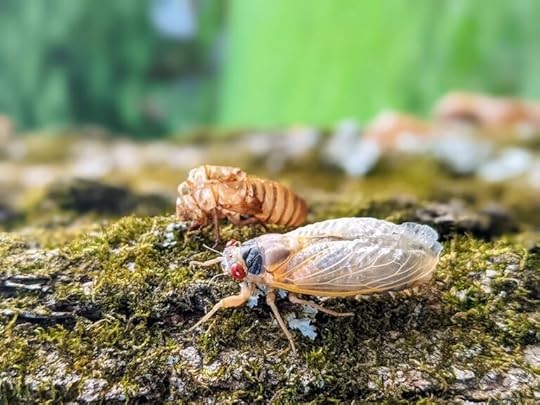 It looked something like this.
It looked something like this.One of the most memorable things about being a kid in Queens, New York was the roar of the cicadas in late summer. Young cicadas would shed their juvenile exoskeletons on the trees to begin their next phase of life as winged adults. They’d fly off to sing for mates, their scratchy mating songs punctuating the summer evenings, their old beige skins abandoned on the trees of my block.
My best friend’s brother collected the exoskeletons, each day finding a few more on the trees, picking them carefully off the bark and adding them to the ever-growing stash of hollow cicada skins he kept in Dixie cups in his bedroom (gross, I know — but that’s what kids do). Some were missing a leg or two, and some were frozen in funny poses that my friend and I would imitate, but each brittle, transparent shell shared the same distinctive feature — a neat split at the shoulders — its former occupant’s exit door from its old life.
As a child, I saw an occasional live cicada on the sidewalk, likely suffering from the unforgiving concrete heat — either ambling slowly as if in a daze or circling on its back, white belly up, frantically beating its wings and rattling abrasively with the incessant buzz of a tiny electric razor. But usually, it was their empty shells I saw — hundreds of them, dappling the trees like little transparent spacesuits discarded by tiny aliens, their owners long departed, hooked feet still clinging to the bark. Though I saw the shells everywhere, I never actually saw a cicada squeeze out of one — not until I was about 25.
I was at my then-boyfriend’s house. It was early evening and dusk was falling. I forget why I was walking through their backyard alone, but that’s what I was doing when I almost walked into it — a solitary cicada at eye level on a tree, just beginning its tight squeeze from its shell. I stood transfixed. My boyfriend’s mom called for me — dinner was ready — but I wouldn’t come in. My boyfriend called me too, and then his dad, but no, I’d never seen this before, and damn it, I was going to watch it.
The tiny dramatic struggle began to play out in front of me — the adult cicada quietly emerging, slowly and painstakingly, damp, naked, and vulnerable, sharing its rite of passage only with me — a lucky audience of one. I yelled for the others to come out and watch, but they just laughed at me, the crazy girl watching a bug in the backyard.
It took about 20 minutes for the clumsy creature with bulging eyes to finally free himself completely. When he did, he climbed up on his former skin with new, tiny legs, and perched at the split as if he’d reached a mountain summit, slowly fanning his wings in triumph. I’d always found the cicadas creepy and ugly, but its transformation had been surprisingly beautiful. I was teased throughout dinner, but no one could dampen my joy; I knew I’d witnessed something precious — a fellow earth creature’s life passage — and the others had missed it. Their loss.
That cicada is long gone, but it taught me to look for the tiny, beautiful dramas that are surely playing out all around us, all the time. How many moments do we miss when we are rushing off to dinner or whatever else is so damn important?
Always make time for the unexpected surprises that pop up in front of you; they’re The Universe’s little gifts, just for you. Dinner can wait.
Like this story? Read more like it in Jump in the Holes: And Other Small Ways to Live Your Biggest Life by Wendy Z Lewis.
[image error]That Time I Watched a Bug Get Naked was originally published in CRY Magazine on Medium, where people are continuing the conversation by highlighting and responding to this story.



